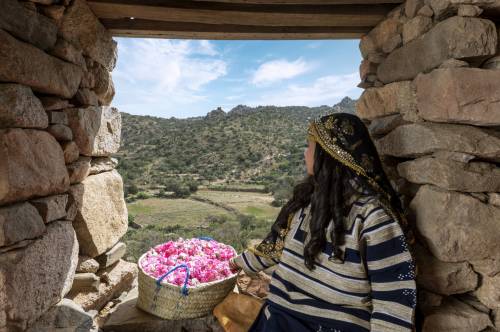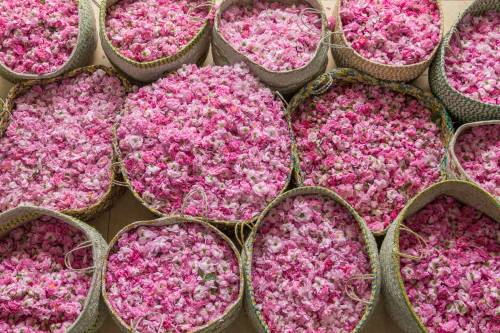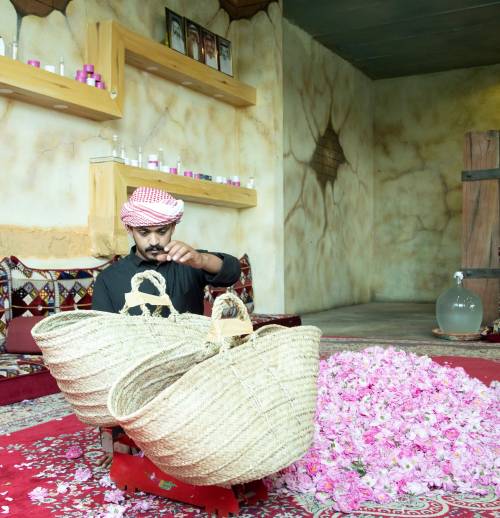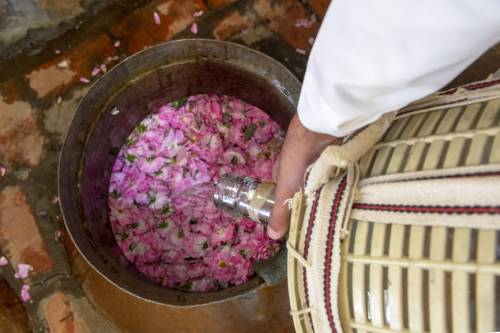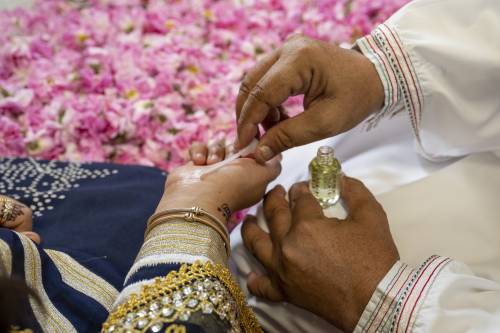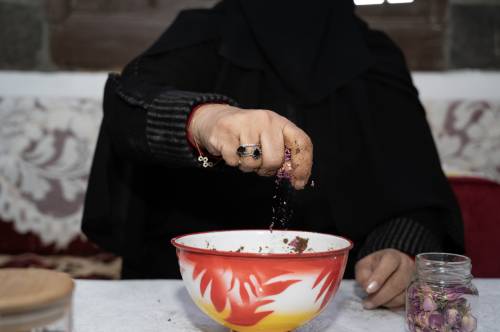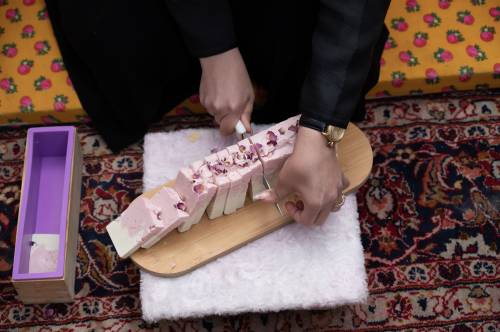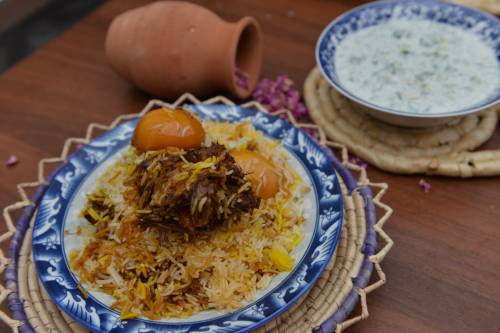Cultural practices related to Taif roses
Inscribed in 2024 (19.COM) on the Representative List of the Intangible Cultural Heritage of Humanity

In the Taif region of Saudi Arabia, rose practices are a key part of the inhabitants’ cultural heritage and identity. From December to February, farmers fertilize and water the land, prune the rose bushes, and plant cuttings. The harvest season begins in March and lasts thirty-five to forty-five days. During this time, farmers and their families and friends pick the roses in the early morning and transport them to the local market to be sold or to their houses to be distilled. Communities use rose water and essential oil in beauty products, traditional medicine, traditional dishes, and to flavour drinks. One local custom entails throwing fresh roses or petals in front of guests to celebrate their arrival. Taif roses and rose water are also presented as gifts to family and friends, including outside the Taif region. Rose practices are transmitted within families through observation and participation, with children supporting their parents in the cultivation, harvesting, distillation and preparation of local rose products. Organizations and cooperatives also organize training sessions on Taif rose cultivation. Rose practices reinforce social cohesion in the region, as they are an integral part of social and religious rituals. They are also an important source of income.
